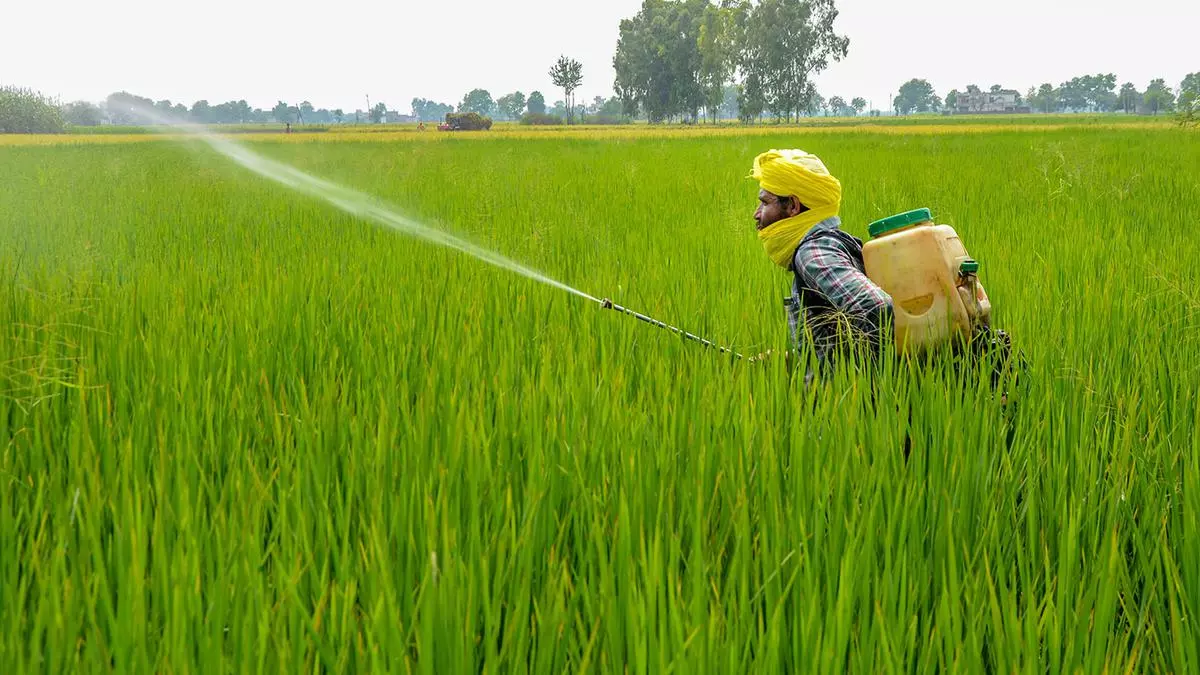Over 7,000 firms fail to comply KYC norms in pesticides
In a major reform aimed at curbing spurious and fake pesticides, the government has weeded out over 7,000 firms that had registered their products with the Central Insecticides Board and Registration Committee (CIBRC) after enforcing KYC as only 2,584 companies have been found to be compliant with the norms. Accordingly, States are advised to take note that products of those firms are not marketed since their registrations are automatically cancelled, sources said.
“Pesticides management is one of the focus points of the government in view of rampant and indiscriminate use of these chemicals. As a first step, the registration was checked with minimum KYC norms so that genuine manufacturers are identified. The number of companies that are KYC-compliant now stand at less than 2,600 from a level of close to 10,000,” a senior official said.
IPMS
The KYC-compliant companies will help the government to take further steps that will help ensure unnecessary usage of these chemicals, the official said. The government plans to launch a portal – IPMS (Indian Pesticides Management System) which will help it to better manage things on the ground as sales and distribution data will get recorded, he said. “Despite the rules prescribing Schedule H pesticides to be sold only by someone having a certificate in agriculture science, it is hardly enforced. Farmers are sold such pesticides over the counter and retailers have become the main advisers. This has to change,” he said.
After Niti Aayog’s Member Ramesh Chand had suggested the industry to move from selling pesticides to pest-control and to offer solutions like integrated pest management, the government wants to make ready a proper environment where these companies will be able to undertake services, sources said.
On the online sales of pesticides, the government may also consider allowing only manufacturers or brands to sell directly to farmers without middlemen, sources said. However, there are challenges like getting the container/bottles of some specified pesticides back by the manufacturers themselves, for which solutions have to be found, the sources said.
There are 946 pesticides formulations and 339 insecticides/pesticides registered for use in the country under The Insecticides Act, 1968 as on March 31, 2024. Verification of registered companies under CIB was a long-pending demand from the agrochemical industry and concerned stakeholders.
“It will help CIBRC to clean up the system and filter out the unscrupulous manufacturers and fly-by-night operators from the agrochemical industry. It will also help to zero in on to those who manufacture illegal, substandard, spurious, fake and counterfeit products. It’s a beginning to provide good quality agrochemicals to farmers and control spurious products,” said Bhagirath Choudhary, founder director of Jodhpur-based South Asia Biotechnology Centre.
The Agriculture Ministry must repeat this exercise for products and companies registered under Fertiliser Control Order (FCO) and bio-stimulants which are flooding the market in the name of plant growth promoters, Choudhary added.
